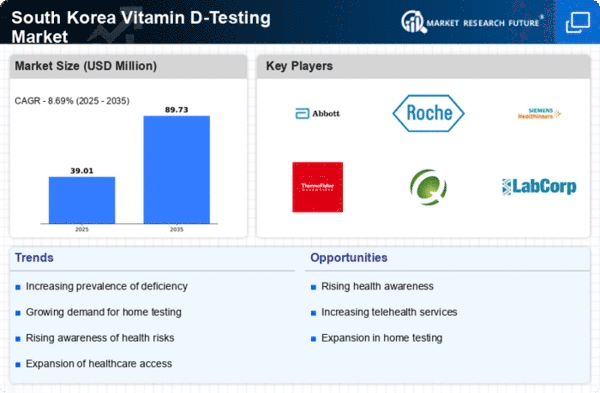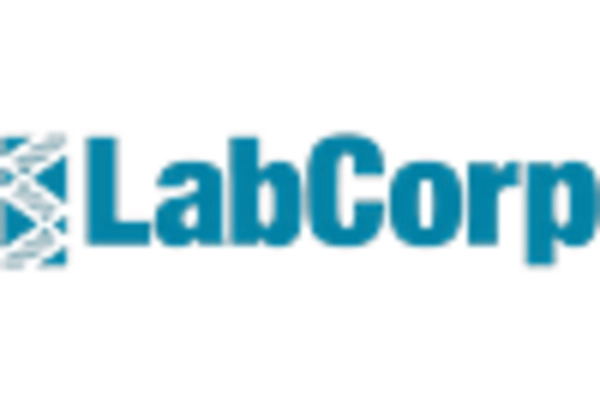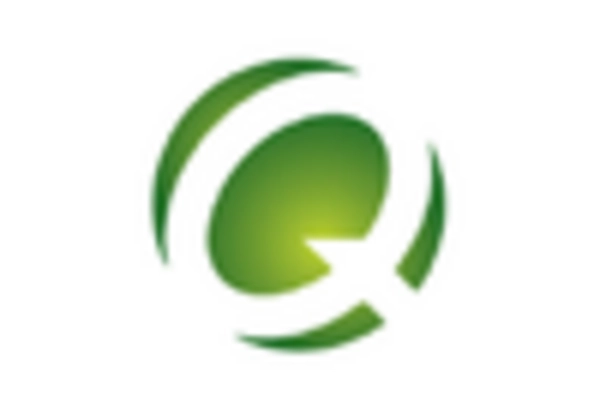Emergence of Home Testing Kits
The introduction of home testing kits for vitamin D levels is transforming the Vitamin D-Testing Market in South Korea. These kits offer convenience and privacy, allowing individuals to test their vitamin D levels without visiting a healthcare facility. The growing trend of self-monitoring health metrics is likely to boost the market, as consumers seek accessible and user-friendly solutions. Market data suggests that the home testing segment could account for up to 30% of the overall vitamin d-testing market by 2026. This shift towards home testing may also encourage more individuals to monitor their vitamin D levels regularly, further propelling market growth.
Rising Interest in Preventive Healthcare
The increasing focus on preventive healthcare in South Korea is significantly influencing the Vitamin D-Testing Market. As individuals become more proactive about their health, there is a growing demand for tests that can identify potential deficiencies before they lead to serious health issues. This trend aligns with the broader movement towards preventive measures in healthcare, where early detection is emphasized. The Vitamin D-Testing Market may experience a surge in demand as more people seek to understand their vitamin D status as part of their overall health strategy. Projections indicate that this could lead to a market expansion of approximately 12% over the next few years.
Increased Prevalence of Vitamin D Deficiency
The rising incidence of vitamin D deficiency in South Korea is a critical driver for the vitamin d-testing market. Studies indicate that approximately 50% of the population may be deficient in vitamin D, particularly among the elderly and those with limited sun exposure. This alarming trend has prompted healthcare professionals to recommend regular testing to monitor vitamin D levels. As awareness of the health implications of deficiency grows, individuals are increasingly seeking testing services. The vitamin d-testing market is likely to expand as healthcare providers emphasize the importance of maintaining adequate vitamin D levels for overall health, potentially leading to a market growth rate of 10% annually.
Integration of Testing in Routine Health Check-ups
The incorporation of vitamin D testing into routine health check-ups is becoming more prevalent in South Korea. Healthcare providers are recognizing the importance of assessing vitamin D levels as part of comprehensive health evaluations. This trend is likely to enhance the vitamin d-testing market, as patients are encouraged to undergo testing during regular medical visits. The convenience of having vitamin D tests included in standard health assessments may lead to increased demand. Furthermore, the market could see a rise in testing frequency, with estimates suggesting a potential increase of 15% in testing rates over the next few years, thereby driving market growth.
Collaboration Between Healthcare Providers and Laboratories
The collaboration between healthcare providers and laboratories is enhancing the efficiency and accessibility of Vitamin D Testing in South Korea. Partnerships are being formed to streamline the testing process, making it easier for patients to access testing services. This collaboration is likely to improve the turnaround time for results, thereby increasing patient satisfaction and encouraging more individuals to undergo testing. As healthcare providers promote these partnerships, the vitamin d-testing market may see a notable increase in testing volumes. Estimates suggest that this collaborative approach could lead to a 20% increase in testing availability, further driving market growth.
















